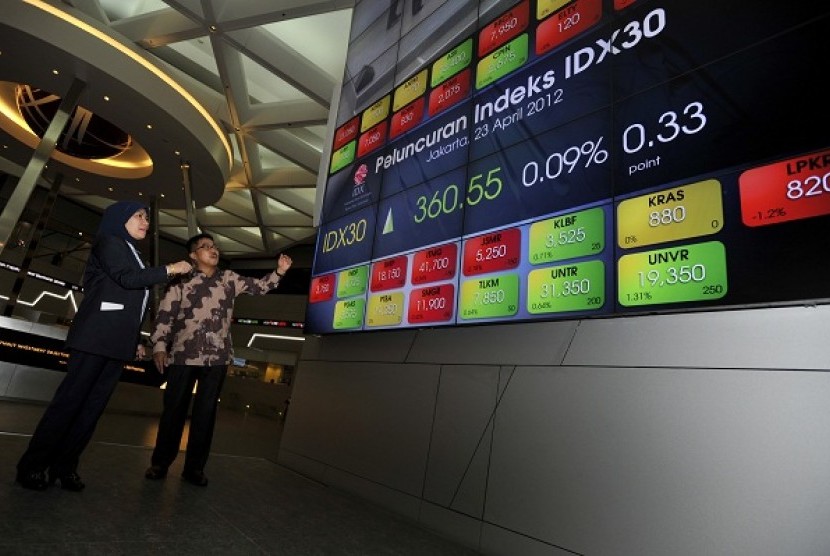REPUBLIKA.CO.ID, JAKARTA -- Investors will assess the performance of the new President in the first 100 days of his government, an economic observer has said.
"The performance of the cabinet in the first 100 days could already be seen whether they are working hard or not. The market will look at the new cabinet's body language," A Tony Prasetiantono of the Gajah Mada University said here on Friday.
Therefore, he said, the upcoming president should be careful in forming the composition of his cabinet ministers. The market response to the upcoming government's performance will be seen in the fluctuation of the stock index price at the Indonesian Stocks Exchange (BEI).
Tony expressed hope that the government of Joko Widodo or Jokowi and Jusuf Kalla (JK) will raise the price of subsidized fuel oils (BBM) next November so that the burden of the 2015 state budget will not be too heavy.
"I think November is the correct time to hike BBM prices so that in 2015 state budget will already run smoothly," Tony noted.
He said that if the BBM prices were raised in 2015, then the correct time is in March.
"In January, there will be high inflation because of floods that disturb supplies of goods while in February the effect of the January inflation will still be felt," he explained adding that thereby March will be the correct time to raise BBM prices.
However, he added, it is little bit late so that best time for raising prices is in January.
In the meantime, Tumiran, a National Energy Board member said the increase in subsidized fuel oil prices should be implemented in stages in accordance with the fiscal security consideration.
"It is better to be implemented in stages, and the figure of increase should be adapted to the level of fiscal security, although the maximum increase is between Rp2 thousand to Rp2.5 thousand," Tumiran noted on Wednesday.
According to him, the increase in subsidized fuel oil prices was considered the best possible step to solve the problem of trade balance deficit resulting from imports and large sums of subsidies.
Tumiran opined that it was much better for the government to reduce the dependence on imports and subsidies by allocating the funds spent on them for improving infrastructure to boost the other economic sectors.
"Our subsidies and imports are big. Therefore, I agree that the price of subsidized fuel oil should be increased, and the money should be allocated to the other economic sectors," he noted.
But, he also urged the government to make necessary improvements by accelerating infrastructure development, new and renewable energy development, and the development of the domestic energy industry.
Earlier, the transitional team of Joko Widodo-Jusuf Kalla government had planned to raise the subsidized fuel oil prices by Rp three thousand in November 2014.
According to Bank Indonesia Senior Deputy Governor Mirza Adityaswara, an increase in the price of subsidized fuel oil of Rp1,000 per liter would contribute 1-1.5 percent to the inflation rate.
"Any rise of Rp1,000 per liter will contribute 1-1.5 percent to the inflation rate at the end of 2014. So, if the price of subsidized fuel is raised by Rp three thousand per liter, it will contribute 3-4.5 percent to the inflation rate," he remarked here recently.


